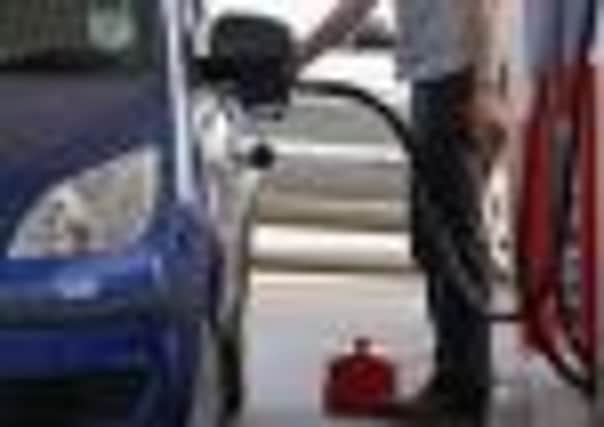£90 to fill up your car, motorists warned


The gap in public finances will come from increasing use of more fuel-efficient cars and a switch to electric vehicles, the RAC Foundation-commissioned report said.
Advertisement
Hide AdAt today’s prices, if the Chancellor boosted fuel duty by 50 per cent, it would increase from 58p per litre to 87p. The result would be that to fill up an average sized car with petrol would cost £87.50 compared to £70 under today’s levels of tax.
The report calculated that while the fuel duty collected by the Exchequer stands at 1.7 per cent of gross domestic product (GDP), this rate will tumble to 1.1 per cent of GDP by 2029.
And it said vehicle excise duty (VED) would also drop over this period, from 0.4 per cent of GDP to 0.1 per cent.
The combined fall would lead to the £13 billion shortfall by 2029, according to the study by the Institute for Fiscal Studies called Fuel for Thought – The what, why and how of motoring taxation.
RAC Foundation director Professor Stephen Glaister said: “If the Chancellor was faced with a £13 billion shortfall in motoring tax revenue today, he would need to push the rate of fuel duty up from 58p per litre to 87p per litre to fill the financial black hole. Clearly there is no guarantee that future rises in duty rates will be limited to inflation, as is current policy.”
He added: “As drivers endure record prices at the pumps they might be surprised to learn that future governments face a drought in motoring tax income.
Advertisement
Hide Ad“The irony is that while ministers encourage us to buy greener, leaner cars, they are being forced to look at ways of clawing back the money motorists think they will be saving.
“This isn’t scaremongering. The Treasury has already announced a review of VED bands to ensure drivers make a fair contribution to the public finances even as cars become more fuel-efficient.”
Advertisement
Hide AdA spokesman for the RAC Foundation said the situation could mean that motorists who make the decision to buy greener vehicles could end up paying as much to fill up the tank as they currently do for a fuel-guzzling car because tax is increased.
Paul Johnson, director of the Institute for Fiscal Studies, argued there was a fairer way of taxing motorists that should be adopted by the UK government.
He said the current system did not reflect the costs drivers impose on others.
“Many drivers, in rural areas for example, are effectively over-taxed,” he said. “But some, in congested urban areas, pay a lot less in tax than they would if they were paying for the costs they impose on other road users.”
And he said the current system did not allow for the fact that as cars become more fuel efficient, the revenue from petrol tax will fall “eventually to close to nothing”.
He argued: “A national system of charging related to mileage and congestion, largely replacing the current system of fuel taxation, would help solve both those problems.”
The Treasury was contacted for a comment but when The Scotsman went to press had not responded.